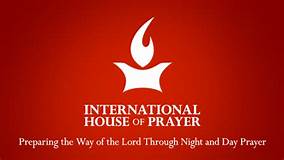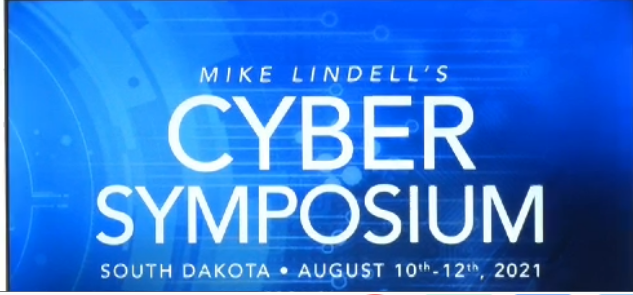Whether one is a prophet or not, we are all called to be good stewards of God’s Word(s). The book of Hebrews describes the Word as a sword that cuts through our flesh to sanctify our hearts (Hebrews 4:12). In the passage from Timothy, the word “handling” (or “dividing” in the King James) means “cutting a straight line,” as in laying out a road that is straight. I believe this is a picture of what truth should accomplish. It shouldn’t divide us into camps but lead us to the same goal. As issues arise within the Body of Christ and differences emerge, God’s Word will always cut through the chaos and confusion to bring us through in unity.
An ongoing concern affecting many in the prophetic community is the recent charge of false prophets among us because of their words and messages. I did address some of these issues in a previous post, however, I want to offer further clarification on how Scripture specifically identifies and classifies a false prophet. As much as this topic is getting tiresome for some, the reality is that the issue is not going away. As we anticipate another major move of Holy Spirit on the earth, I believe we are going to experience even more unusual and controversial manifestations and methods of ministry that will raise eyebrows and ruffle feathers. Revival history shows that God uses and anoints people most of us would probably disqualify from the start. And many of them have flaws, failures, and unconventional approaches to ministry. But, do these things make them false? What is it that God looks for when He discerns the heart of His servants?
Here are several passages from both Old and New Testaments that address this issue and reveal specific characteristics that will mark those who are truly false prophets:
But in the prophets of Jerusalem I have seen a horrible thing: they commit adultery and walk in lies; they strengthen the hands of evildoers, so that no one turns from his evil; all of them have become like Sodom to me, and its inhabitants like Gomorrah. (Jeremiah 23:14)
They say continually to those who despise the word of the Lord, ‘It shall be well with you’; and to everyone who stubbornly follows his own heart, they say, ‘No disaster shall come upon you.’ (Jeremiah 23:17)
How long shall there be lies in the heart of the prophets who prophesy lies, and who prophesy the deceit of their own heart, who think to make my people forget my name by their dreams that they tell one another, even as their fathers forgot my name for Baal? ... Therefore, behold, I am against the prophets, declares the Lord, who steal my words from one another. (Jeremiah 23:26-28)
If a prophet or a dreamer of dreams arises among you and gives you a sign or a wonder, and the sign or wonder that he tells you comes to pass, and if he says, ‘Let us go after other gods,’ which you have not known, ‘and let us serve them,’ you shall not listen to the words of that prophet or that dreamer of dreams. For the Lord your God is testing you, to know whether you love the Lord your God with all your heart and with all your soul. ... But that prophet or that dreamer of dreams shall be put to death, because he has taught rebellion against the Lord your God. (Deuteronomy 13:1-4)
Beware of false prophets, who come to you in sheep's clothing but inwardly are ravenous wolves. You will recognize them by their fruits. (Matthew 7:15)
I know that after my departure fierce wolves will come in among you, not sparing the flock; and from among your own selves will arise men speaking twisted things, to draw away the disciples after them. (Acts 20:29)
But false prophets also arose among the people, just as there will be false teachers among you, who will secretly bring in destructive heresies, even denying the Master who bought them, bringing upon themselves swift destruction. And many will follow their sensuality (insolence, lust, excess), and because of them the way of truth will be blasphemed. And in their greed they will exploit you with false words. (2 Peter 2:1-3)
Beloved, do not believe every spirit, but test the spirits to see whether they are from God, for many false prophets have gone out into the world. By this you know the Spirit of God: every spirit that confesses that Jesus Christ has come in the flesh is from God, and every spirit that does not confess Jesus is not from God. (John 4:1)
The overwhelming evidence is that a false prophet is known by the intention of their heart to lie and deceive for the purpose of destroying faith in God. They are calculated in their ultimate purpose to mislead people away from the Word of God and relationship with Christ. Because they give into their flesh, the open door to the enemy fuels unclean spirits to further contaminate their message.
But, even as these passages are fairly clear about what true wolves and counterfeits look like, it doesn’t address the problem with authentic prophets and teachers who may be immature, misguided, unconventional, personally struggle with some sin, or are simply walking in error. These issues should certainly be addressed by proper spiritual oversight for the sake of the Body. Even so, fleshly leaders are not the same as false ones. Prophets with unsettling methods or unusual experiences may seem unorthodox, but it doesn’t make them deceptive liars. It will always be the state of their heart and the purity of their cause that will set apart the true from the false.
WHAT ABOUT PROPHETIC ACCURACY?
Obviously, another clear mark of true prophets is their track record for accurate prophecies. Second in priority to the inclination of their heart is the integrity of their words. A true prophet of the Lord should demonstrate a consistent pattern of hitting the mark by speaking words that come to pass and bear fruit. Unfortunately, many try to justify blacklisting an inaccurate prophet with an Old Testament paradigm.
But the prophet who presumes to speak a word in My name that I have not commanded him to speak, or who speaks in the name of other gods, that same prophet shall die. And if you say in your heart, ‘How may we know the word that the Lord has not spoken?’— when a prophet speaks in the name of the Lord, if the word does not come to pass or come true, that is a word that the Lord has not spoken; the prophet has spoken it presumptuously. You need not be afraid of him.
Deuteronomy 18:20-22

We must remember the context for Old Testament prophecy. Because the Holy Spirit was not yet given, no one had access to hearing God’s voice. There was no “inner witness” or ability to know what He was saying (can we even imagine?). The only way God could speak to His people before Pentecost was to literally come down upon His servants, the prophets, and speak in first person. Whether face to face, in an audible voice, or some other tangible epiphany, only His prophets could hear His words to speak to the people. Thus, God had to ensure the people knew who to trust. Anyone who falsely claimed to speak His words had to be dealt with severely. This was the only way to guard and protect His limited means of communicating with His people.
Thus, we can only imagine the dramatic and radical shift the people of God experienced at Pentecost! Now, every single human being had access to His voice, His heart, and His words! Now, everyone could have an inner witness to what He was saying. This meant that protocols changed as God charged His people to discern together His words and His ways (Hebrews 5:14).
But this gift of the Holy Spirit also opened the door to many other factors having to be considered when trying to interpret and apply the often-symbolic messages from God. Given this reality, should we expect a prophet to have 100% accuracy in receiving, interpreting, and applying God’s words? Because there are no specific scriptural directives in this following Pentecost, it may be unrealistic to expect it. Though we should certainly aim for it, the challenge for most prophets is not in receiving true and authentic revelations and words from the Lord. It is in the interpretation and application of those revelations that usually muddy a prophet’s record. Agabus had a clear prophetic warning for Paul in going to Jerusalem (Acts 21:11-12). But he misapplied the word and urged Paul not to go when, in fact, Paul needed to go. Agabus was a true prophet of God even though he was presumptuous in his interpretation.
I believe this matter of presuming upon God’s words are probably the greatest mistake we have made as prophets in the last few years. Upon receiving initial revelations, a gift of faith can be mistaken for prophecy and details added that are more presumption than inspired. Personally, I was presumptuous in believing President Trump would return to office by the end of 2022. Though my initial revelations of God’s intentions for President Trump have gone unchanged, my interpretation and application of those revelations were misplaced. Though I still believe President Trump will return to his public office, the timing and means of fulfilling his assignment is unclear. This lesson has reinforced my own determination to be much more circumspect in how I share prophetic revelations so that any unknown factor will be left as is and not presumed upon.

DEALING WITH CONTROVERSIAL PROPHETS
William Branham was a highly controversial prophet in the 1950’s that helped spark healing revivals worldwide. His angelic visitations and gift of uncanny words of knowledge became legendary. Yet, his unresolved wounds from the past led him to beliefs and practices outside the dogmas of the Christian faith. Though his intentions were seemingly noble, he never dealt with his own demons, resulting in mixed reviews and rising doubts concerning the supernatural realities he professed.
Lonnie Frisbee was a key figure in the Jesus People Movement of the 1960’s that helped birth the Charismatic renewal. Coming from a broken home and living a hippie lifestyle of drugs and homosexuality, he had a dramatic supernatural encounter with Christ in his late teens. The resulting anointing on his life brought radical changes to the evangelical church. Undeterred by religious protocols, Lonnie led thousands of people into the baptism of the Holy Spirit which brought unfamiliar manifestations of power. But his ongoing struggles with his sexual identity marred his ministry. Though the long-lasting fruit of his ministry is undeniable, his personal failings caused many to question the supernatural call on his life.
Both of these seer prophets ministered with a strong anointing followed by signs and wonders. And yet, it was their personal failings that caused them to get off track. I don’t believe either one of them were false prophets, but flawed human beings - that God still chose to use. It is in this area of addressing personal weaknesses and moral failures that the Church must grow if we are to break some bad habits. Especially prophetic servants who are anointed to bring supernatural ministry to the people, healthy oversight and pastoral care must be given in order to preserve integrity and unity in the Body.
An example of this is in the testimony of Benny Hinn, another controversial minister of our time. Though more healing evangelist than prophet, his flamboyant ministry style and unusual methods caused many to doubt his sincerity and the manifestations of power displayed in his meetings. He eventually lost his marriage and his ministry. But Jack Hayford, a well-known pastor and teacher from southern California, took Benny under his wing. He recognized the call on Benny’s life and loved him back to health. Not only was Benny’s marriage restored, but he also changed how he did ministry. His personal testimony of Jack’s influence on his life should be an example of how controversies might be settled – through meaningful personal relationships that call out the best and not the worst.
HOW TO SETTLE DISPUTES
As always, Scripture is the plumbline for how the Body of Christ should address both false prophets as well as controversial ministers and methods. In dealing with false ministers, the apostle Paul cites numerous times how to deal with them: Avoid them (Romans 16:17). Stay focused on the mission (2 Timothy 4:3-5). Don’t fall into their traps (Colossians 2:8). Demonstrate the opposite spirit (1 John 1:4-6). Remember that God Himself will rebuke them (2 Peter 2:15). Ultimately, they will reap the consequences of their destructive ways (2 Corinthians 11:14).
It would seem that God’s directives concerning false ministers is to stay clear of their poison and speak what is true. Rather than calling even more attention to their twisted messages, focus on manifesting the true power of the Kingdom with integrity and purity. Thus, everyone can see the difference in tangible ways.
Dealing with controversial matters, however, is where the challenge lies. Anyone can call out a heretic. But settling differences with another minister requires humility and maturity of character. The particular concerns that have been raised in the prophetic camp recently deal with particular messages being taught and controversial experiences being promoted. These can only be understood and resolved through personal connection and conversation. Before labeling anyone as false or deceptive, a mature leader will give an opportunity for that individual to explain their words and actions – in person, and in private. This cannot be done online or through a third party.
Though the protocol for conflict resolution listed in Matthew 18:15-17 pertains to an individual who has been sinned against, I believe there are valuable principles that can be applied to nationally-recognized ministers. The reason is that conflict resolution, whether because of personal sin or ministry error, can only be resolved when each party is committed to preserving the unity of the Spirit. The ultimate goal of this entire process is to restore the Body to health – including the individuals involved. Thus, if a national prophet is speaking in error, other leaders with recognized spiritual authority in the same field are responsible to go to that minister to address the concern in hopes of restoring them to truth.
It is my personal belief that those being charged as false prophets do not bear the marks of false ministers. The issues being raised about their supernatural revelations and how they are communicating them are fair questions and need to be addressed for the sake of the Body. But these should be done in private before publicly disqualifying them. It is only then that the true state of their hearts will be made clear by their response. Thus far, the two ministers cited have only responded to these accusations with kindness and blessing. This alone should say something about the inclination of their heart.
Should we be concerned with false prophets and false teachers? Yes! Should we address teachings that are counter to the biblical standard or unclear in their messaging? Most certainly. But, we should be just as concerned with the health and well-being of fellow ministers who have been truly called and anointed by God. If there is error, a true servant of the Lord will prayerfully consider any challenge brought before them without defense or counter attack. But, they must be given that opportunity.
It is my prayer that those called to fivefold ministry will address any ongoing concerns with each other in a way that not only upholds truth, but reflects Christ’s love for His Bride. His Body is depending on it.
The eye cannot say to the hand, “I have no need of you,” nor again the head to the feet, “I have no need of you.” ... But God has so composed the body, giving greater honor to the part that lacked it, that there may be no division in the body, but that the members may have the same care for one another. If one member suffers, all suffer together; if one member is honored, all rejoice together.
1 Corinthians 12:21-26
Watch this teaching below with added illustrations and content - both on YouTube and Rumble.
RUMBLE VIDEO HERE
|
||||||||||
| |
![]()
![]()
























































